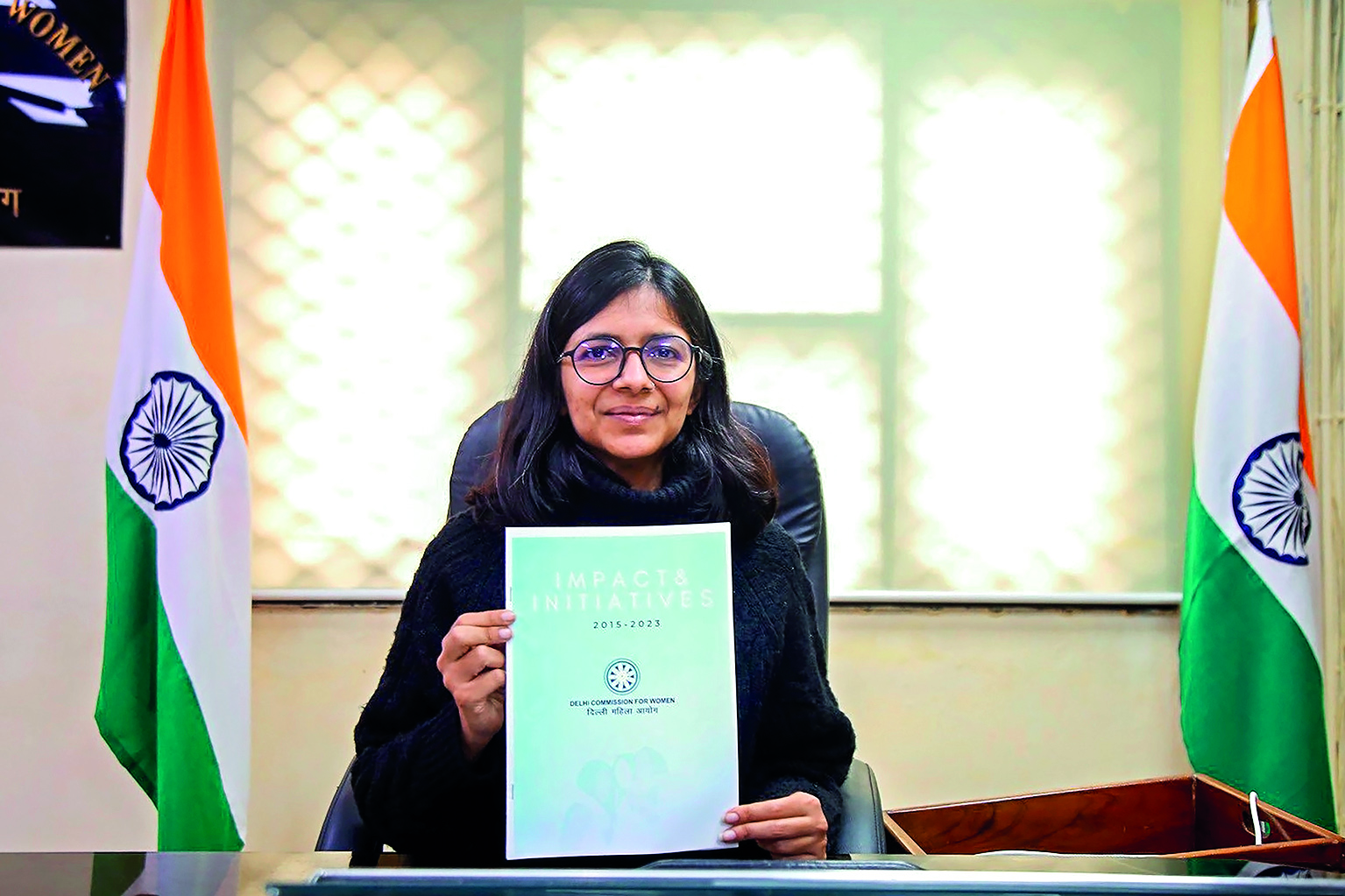Delhi Commission for Women highlights transformative efforts under leadership of chairperson Swati Maliwal

New Delhi: In a comprehensive report spanning eight years, the Delhi Commission for Women (DCW) highlighted its transformative efforts under the leadership of chairperson Swati Maliwal.
The report unveiled a remarkable surge in caseload, advocacy initiatives, and impactful interventions to address various women-centric issues.
Since assuming office in 2015, Maliwal revitalized the commission’s programmes, expanding its grassroots network to offer assistance to distressed women 24/7. The DCW, under her leadership, handled a staggering 1.7 lakh cases in the past eight years, showcasing a substantial 700 per cent increase compared to the previous commission’s workload.
Key achievements outlined in the report include the commission’s submission of over 500 policy recommendations to the government, emphasizing the significance of its role in influencing systemic changes. The Rape Crisis Cell, a pivotal initiative, aided survivors in 1,97,479 court hearings, demonstrating its substantial impact on survivors of sexual assault.
“The 181 Women in Distress Helpline received over 41 lakh calls, signifying its critical role in providing immediate support. Additionally, the Mobile Helpline Programme, operating 24/7 with counsellors and 23 vans, conducted over 2,59,693 visits to assist women in distress and successfully rescued over 2,500 women and girls,” revealed Maliwal during a press conference on Friday.
The Mahila Panchayat centers registered 2,13,490 complaints, fostering community engagement through 52,296 organized community meetings. The DCW’s Cyber Crime Cell proactively addressed over 3,151 cases related to cybercrime against women.
The report highlighted Maliwal’s bold initiatives, including an indefinite hunger strike (Anshan) against child rapes, resulting in the government passing an ordinance with stringent punishment for child rapists. Her leadership also played a pivotal role in the amendment of the Juvenile Justice
Act in December 2015.
Notably, the DCW chief’s visit to violence-hit Manipur underscored the commission’s commitment to addressing challenges beyond Delhi. The DCW became the first government agency to visit the state, offering assistance and submitting interim recommendations for urgent intervention.
The report also outlined the DCW’s efforts against trafficking and commercial sexual exploitation, leading to the rescue of more than 2,500 survivors. The ‘Mahila Suraksha Yatra,’ a transformative 13-day foot march in 2019, and the ‘Rape Roko’ movement in 2018 showcased the commission’s commitment to raising awareness and mobilizing public sentiment against gender-based crimes.
In its unique Satyagrah protests in 2017 and 2018, the DCW advocated for systemic changes to address child rapes, with the chairperson abstaining from returning home during these protests. The DCW also played a crucial role in the rehabilitation of rape survivors through its Crisis Intervention Centre and Rape Crisis Cell.
Maliwal expressed her satisfaction with the commission’s work on social media, stating, “Working with clear intentions and honesty, we served every woman of Delhi considering them as our family members.”



